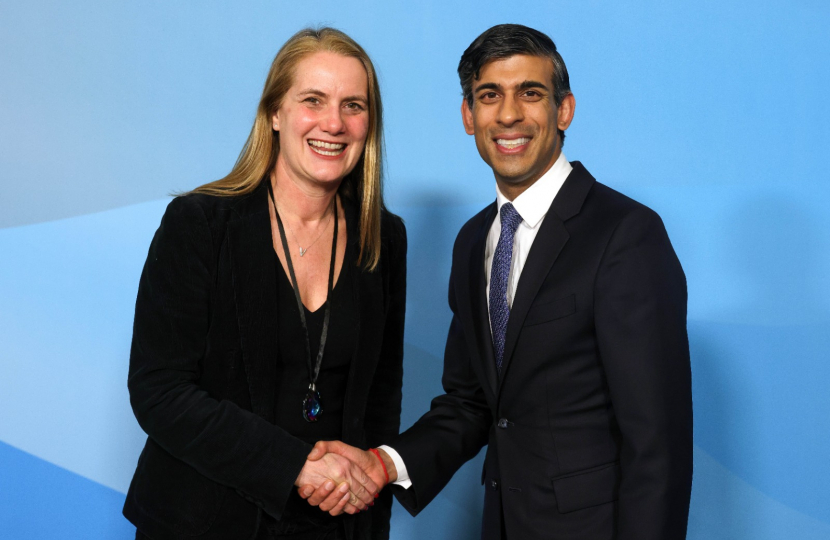
Mae pryderon mawr ynghylch cysylltedd trafnidiaeth ledled Ynys Môn rhwng ein hynys a’r tir mawr wedi bod dros yr ychydig flynyddoedd diwethaf.
Rydym wedi gweld ein gwasanaethau rheilffordd yn ei chael hi’n anodd dychwelyd i’w safon cyn Covid, gwasanaethau bysiau’n cael eu canslo, Pont Menai’n cael ei chau a’i hail-agor yn rhannol, cyfyngiad rhagosodedig o 20mya a Llywodraeth Cymru’n cyhoeddi nad yw trydedd bont dros y Fenai ar eu hagenda.
Pobl a chymunedau lleol sy’n dioddef pan fo trafnidiaeth yn annigonol. Nid yw’r cysyniad bod pawb o fewn 15 munud ar droed o nwyddau a gwasanaethau’n dal dŵr mewn cymunedau gwledig a lled-wledig fel cymunedau Ynys Môn.
Over the past couple of years, issues with transport connectivity across Ynys Môn and between our island and the mainland have been the subject of great concern.
We have seen our rail services struggle to return to pre-Covid standards, local bus services cut, the Menai Suspension Bridge closed and only partially re-opened, a default 20mph limit imposed and the Welsh Government announce that a third Menai crossing is off their agenda.
It is local people and communities that suffer when transport is inadequate. The concept that everyone should be within a 15 minute walk of goods and services simply does not hold water in rural and semi-rural communities like those on Anglesey.
The idea that we should all just get our bikes out isn’t a practical solution for older people or those with mobility problems, nor is it the answer for children who need to get to and from school on narrow country lanes in gale-force winds and driving rain.
At a meeting on Monday about the works to repair the Menai Suspension Bridge I was informed that the winds had come earlier than predicted this year and progress has already been delayed by two days. That equates to half a day lost per week during the first four weeks of work.
Those of us living on Ynys Môn have not been taken by surprise by the winds…they are part of our life and we know that the seasonality of our weather has become less and less predictable over recent years.
As the communities in and around Porthaethwy and Beaumaris face yet another uncertain Christmas, I have once again asked the Welsh Government for support for local businesses, a public meeting for local people and financial help for our bus services.
The Welsh Government’s failure to ensure that the Menai Suspension Bridge was properly maintained has had a huge impact on the lives of so many people across Anglesey. The weight and traffic management restrictions that have been put in place on the bridge mean that bus journeys in that area take longer and so the frequency and reach of local services have been hard hit. It is those living in the most rural areas that have suffered the most.
Those same people are now contacting me about further losses in rural bus services due to spending cuts by the Welsh Government. At the same time bus companies across Wales are reporting that their timetables are being seriously impacted by the new default 20mph speed limit.
In addition to asking the Welsh Government for additional bus funding for our island, I have also written to Arriva citing concerns about specific bus services like the 62A service. Concerned parents approached me because this service is being axed leaving around 50 Ysgol David Hughes pupils potentially unable to get to school. I refuse to sit back and accept these matters which is why I am taking action to support and represent those affected.
In 2021/22 (the most recent period for which records are available, total public spending was £13,401 per person in Wales compared to £11,549 per person in England. With nearly £2,000 more of hard earned taxpayers’ money being spent in Wales than England for every person each year, one has to wonder just why our transport services are in such dire shape.
It is simply unacceptable that the Welsh Government spends taxpayers’ money on projects like the 20mph speed limit and increasing the number of Members in the Senedd, whilst it cannot find the cash to give our most vulnerable residents the public transport services they need to access their families, shops, work, health services and education.
A similar failure to understand the special issues of being an island community are evident in the Welsh Government’s decision not to press ahead with a third Menai crossing. Our road links to the mainland are inadequate and the poor transport infrastructure is impacting our island’s economy.
That is why I believe that the Prime Minister’s decision to axe plans for the Birmingham to Manchester leg of HS2 and divert funds to a range of regional rail projects is a good one.
The Covid pandemic has pushed so many of us into virtual communications and, combined with the escalating costs of HS2, it is only right that the Government should review the prudence of extending the programme. I agree with the Cabinet that this money would be better spent on local and regional rail transport needs.
I was delighted when the Prime Minister announced that £1bn of that money will be put into electrification of the rail line across North Wales.
After many years of discussion and debate about the benefits of HS2 as they relate to Wales, this statement clearly demonstrates that the UK Government recognises the need to target funding into the transport infrastructure of North Wales.
Electrification will help our move toward net zero; an electric train emits between 20%-35% less carbon per passenger mile than a diesel train and this will increase as we continue to decarbonise our power generation network.
The Railway Industry Association (RIA) paper Rail Electrification: The Facts also sets out other benefits including:
- Lower long term operating costs
- Improved reliability
- Faster journey times
- Increased freight and passenger capacity.
Electrifying the rail line across North Wales plays into Anglesey’s role as Energy Island. With our capacity to generate decarbonised energy through wind, solar, tidal and nuclear, our island is uniquely placed to drive the development of an electric railway.
This is a further boost to the future economy of Ynys Môn from the UK Government. Over the past three years we have £26m for the Anglesey Freeport, £20m for the Holyhead Breakwater refurbishment to protect the future of the town and £1m for improvements to Ty Croes railway station. We have also benefitted from £17m from the Levelling Up Fund, £16m from the Shared Prosperity Fund, £2.7m from the Community Renewal Fund and almost £1m from the Safer Streets Fund.
All of this UK Government funding is being ploughed into making Ynys Môn a more resilient and economically self-sufficient place to deliver long term benefits to our communities. If the island uses these funds wisely, Ynys Môn has the opportunity and resources to enjoy an economic renaissance by welcoming new investment and delivering high-quality well-paid jobs for local people.
I am determined to continue to deliver the opportunities Anglesey needs to protect our Welsh language and culture and ensure people across our island have a bright future – and that future is here.


